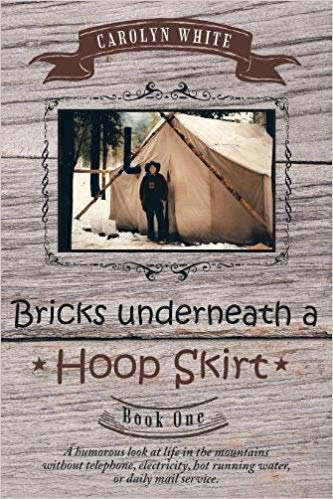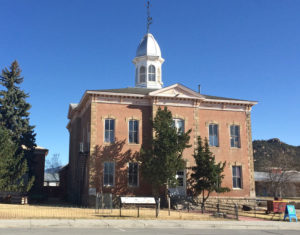 By Carolyn White
By Carolyn White
Liferich Publishing 2018
ISB 978-1-4897-1637-8(sc) 101 pages
Reviewed by Forrest Whitman
When I picked up this book I was immediately skeptical. A book about a young woman working with horses in the backcountry sounded like another “girl meets horse” story. Not so this one. White has an understated, sometimes tongue-in-cheek, style. Her descriptions of many years working for guest ranches in the back country are fresh and keep you turning the pages. Life lived in the pioneer way with no electricity and sometimes no running water, comes through clearly and with no embellishment. She’s also unusual. She doesn’t hunt and she doesn’t mind cleaning up a camp.
Real experiences sparkle in this book. As she’s almost pushed off her horse into the freezing water of a fast-moving creek, we feel her fear. But she doesn’t do what so many Western writers do. She doesn’t pray or have her whole life flash before her eyes. She just tells it like it happened. Not only that, she has a sense of humor about the skilled hard work she does to save her own life.
As she laughs at the hijinks of some of the guides and ranch hands, we have to chuckle. Her guest ranch apparently hired many green young men to work each summer. They fall off their horses. One forgets to cinch up his mule. When the mule leans down to drink he goes up and down, up and down, like a carnival clown. Another forgets that the signal to gallop is a hiss. That leads to humorous results. She is not judgmental, but she does laugh at some of the greenhorns.
As she talks of the deep meaning in the aprons her mother handed down to her, we have to be moved. That kind of bond is rare and perhaps best brought out in the real West. She promises more books of stories and hints that these aprons, as well as letters from her mother, will play a major part.
Carolyn White (not her real name by the way) wrote most of these chapters as weekly articles in The Fence Post and now and again here in Colorado Central. Sometimes the sorting into chapters is a bit forced, but the reader will hardly notice. You get the sense that life without electricity allowed her to slow down and not just write to the deadline each week.
[InContentAdTwo] White also writes some things about life with pack animals few know today. That’s also true of her piece on outhouses. She just keeps dishing up western backcountry knowledge. Who knew how taxing the break in period would be before a young pack handler could get the required permit. Her final test, at the end of guide school, was real enough as she scrambled to bring back some green horses to the pack string again and again. Her instructor noted that she could cuss like a professional.
Frontier knowledge she acquired included learning to cook. Part of that was learning to become friends with Maggie, the camp wood burning stove. She also had to learn how to erect a full backcountry drop camp, sometimes even in the below zero snow. Not only that, she had to clean the lodge floors after each inundation of muddy boots.
She also writes some things about the pack horse profession we probably didn’t know, like the differences between horses and mules. Mules end up being the most reliable. Not so her male guests. A good many of the men end up sounding like unreliable jerks. She’s not anti-male, but life in the backwoods camps can bring out the worst in some with that testosterone thing. She really did ride four miles out to bring back one guy’s pillow, which he then never used. Still she keeps a sense of humor even about this aspect of her job.
The reader will be richly rewarded by this book. It’s not at all a typical “girl in the backcountry” tale. Clearly she is a writer, and I look forward to the next compilation of her work.
One thought did keep intruding. Her backcountry way of life is threatened by the loss of wilderness and public lands. I often wonder what could turn our country away from the lethal spiral of selling off our public lands to extractive industry (won’t happen in this administration for sure). Carolyn White had no intention of writing a book to get involved in the wild lands cause. Still, that’s the effect of a book this well – written about a way of life so important. Our readers will love it.


